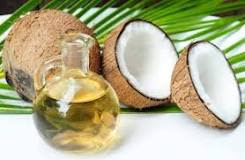MCTs and Appetite Control
MCTs have been shown to suppress appetite, an ability of obvious benefit for those attempting to lower their intake of total calories. In one 14-day study, six healthy male volunteers were allowed unlimited access to one of three diets: a low MCT diet, a medium MCT diet, and a high MCT diet. Caloric consumption was significantly lower on the high MCT diet. The researchers noted that substituting MCTs for other fats in a high-fat diet “can limit the excess energy intakes and weight gain produced by high-fat, energy-dense diets.”MCTs and Atherosclerosis
MCTs have a number of properties that may be beneficial in preventing atherosclerosis. Among these are that MCTs have anti-coagulation effects, and have been shown to lower serum cholesterol. In addition, MCTs reduce levels of cholesterol in the liver and other tissues. MCTs have also been reported to act as antioxidants and reduce tissue requirements for Vitamin E.
MCTs as Medicine for Alzheimer's disease & Others(culled from webmd)
MCTs are used along with usual medications for treating food absorption disorders including diarrhea, steatorrhea (fat indigestion) celiac disease, liver disease, and digestion problems due to partial surgical removal of the stomach (gastrectomy) or the intestine (short bowel syndrome).
MCTs are also used for “milky urine” (chyluria) and a rare lung condition called chylothorax. Other uses include treatment of gallbladder disease, AIDS, cystic fibrosis,Alzheimer's disease, and seizures in children.
MCTs are sometimes used as a source of fat in total parenteral nutrition (TPN). In TPN, all food is delivered intravenously (by IV). This type of feeding is necessary in people whose gastrointestinal (GI) tract is no longer working.
Intravenous MCTs are also given to prevent muscle breakdown in critically ill patients.MCTs are a fat source for patients who cannot tolerate other types of fats. Researchers believe that these fats produce chemicals in the body that help fight Alzheimer's disease.
Why Virgin COCONUT Oil (VCO)?
Virgin Coconut oil composes of saturated, mono-unsaturated and polyunsaturated fatty acids (SFA: MUFA: PUFA) at a ratio of 86.5: 5.8: 1.8 fats.A major portion of its saturated fats are medium chain triglycerides (MCT’s) or medium-chain fatty acids (MCFA’s), ranging from 6-12 carbon atoms. The MCT’s in this oil are lauric acid (C-12), capric acid (C-10), caprylic acid (C-8) and caproic acid (C-6). Together, they constitute 68% of total saturated and 59% of total fat content.
Lauric acid, being a 12-carbon saturated fat, constitutes the major portion of MCTs. 100 g virgin coconut oil contains 44.6 g of lauric acid, constituting more than 45% of total fat content.
Virgin Coconut oil in its unprocessed, non-heated,unfractionated state is one of the healthiest fats on the planet being loaded with beneficial fatty acids called medium chain triglycerides (MCTs). These MCTs or MCFAs (medium chain fatty acids) do not need to be digested by bile salts, which are secreted by the liver and stored by the gall bladder (hint: this is why coconut oil is a really good fat for those who’ve had surgery)
Aside Virgin Coconut oil one can only find Lauric acid in breast Milk!
So to get the full benefit of Virgin Coconut oil ensure that you buy it organic and non-heated.




